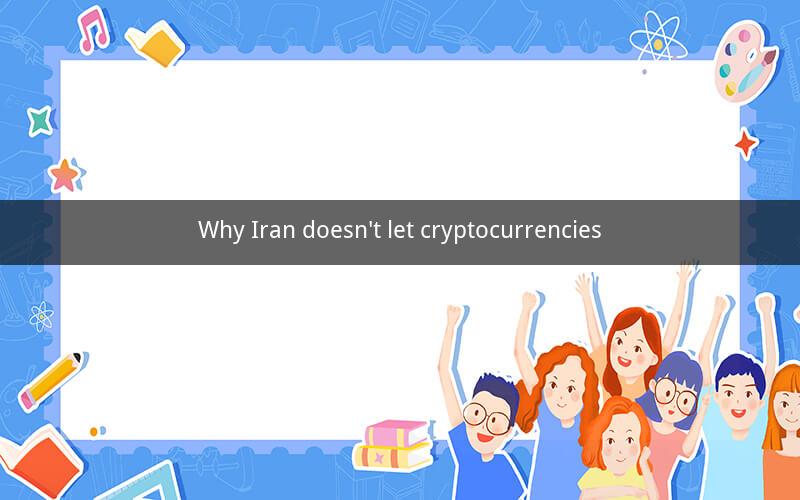
Table of Contents
1. Introduction to Cryptocurrencies
2. The Global Cryptocurrency Landscape
3. Iran's Economic Situation
4. Government Policies and Regulations
5. The Role of Sanctions
6. Public Perception and Acceptance
7. Alternative Financial Systems
8. The Impact on the Black Market
9. Conclusion
---
1. Introduction to Cryptocurrencies
Cryptocurrencies, digital or virtual currencies that use cryptography for security, have gained significant attention in recent years. They operate independently of a central bank and are typically controlled by a decentralized network. Bitcoin, the first and most well-known cryptocurrency, was introduced in 2009, and since then, thousands of other cryptocurrencies have emerged.
2. The Global Cryptocurrency Landscape
The global cryptocurrency market has seen rapid growth, with a total market capitalization that has reached hundreds of billions of dollars. Many countries have embraced cryptocurrencies, using them for investment, transactions, and even as a store of value. However, not all nations have adopted a favorable stance towards these digital assets.
3. Iran's Economic Situation
Iran, a country with a rich history and cultural heritage, has faced numerous economic challenges over the years. Sanctions imposed by the international community, particularly the United States, have had a significant impact on Iran's economy. The country has struggled with inflation, currency devaluation, and limited access to international financial markets.
4. Government Policies and Regulations
The Iranian government has taken a cautious approach to cryptocurrencies. While it has not banned them outright, it has implemented strict regulations and restrictions. These measures are aimed at preventing the use of cryptocurrencies for illegal activities, such as money laundering and financing terrorism, and to protect the national currency, the rial.
5. The Role of Sanctions
Sanctions have made it difficult for Iran to conduct international trade and financial transactions. Cryptocurrencies offer a potential workaround, allowing individuals and businesses to bypass traditional banking systems. However, the Iranian government fears that the widespread adoption of cryptocurrencies could further undermine the rial and exacerbate economic instability.
6. Public Perception and Acceptance
Public perception of cryptocurrencies in Iran is mixed. Some see them as a way to protect their wealth from inflation and sanctions, while others are skeptical of their long-term viability and the potential risks associated with them. The government's stance has also influenced public opinion, with many choosing to avoid cryptocurrencies altogether.
7. Alternative Financial Systems
In the absence of a robust financial system, Iran has developed alternative methods of conducting transactions, such as barter and the use of mobile payment platforms. These systems have helped to mitigate some of the economic challenges faced by the country, but they are not a perfect substitute for a fully functional financial system.
8. The Impact on the Black Market
The use of cryptocurrencies has also had an impact on the black market in Iran. Some individuals and organizations have turned to cryptocurrencies to conduct illegal activities, such as the sale of prohibited goods and services. This has raised concerns among authorities, who are working to combat the spread of illegal activities through digital channels.
9. Conclusion
While cryptocurrencies offer a range of potential benefits, Iran's cautious approach is understandable given the country's economic challenges and the potential risks associated with the widespread adoption of digital currencies. The government's focus on maintaining the stability of the national currency and combating illegal activities remains a priority.
---
10 Questions and Answers
1. Q: Why does Iran have strict regulations on cryptocurrencies?
A: Iran's strict regulations on cryptocurrencies are primarily aimed at preventing money laundering, financing terrorism, and protecting the national currency, the rial.
2. Q: How have sanctions affected Iran's economy?
A: Sanctions have limited Iran's access to international financial markets, leading to inflation, currency devaluation, and economic instability.
3. Q: Are cryptocurrencies legal in Iran?
A: Cryptocurrencies are not illegal in Iran, but they are subject to strict regulations and restrictions.
4. Q: How do cryptocurrencies impact the black market in Iran?
A: Cryptocurrencies have provided a means for conducting illegal activities on the black market, raising concerns among authorities.
5. Q: What is the role of public perception in Iran's approach to cryptocurrencies?
A: Public perception is mixed, with some seeing cryptocurrencies as a way to protect wealth and others being skeptical of their long-term viability.
6. Q: How do alternative financial systems in Iran work?
A: Alternative financial systems in Iran include barter and the use of mobile payment platforms, which help to mitigate some of the economic challenges faced by the country.
7. Q: Can cryptocurrencies be used to bypass sanctions in Iran?
A: While cryptocurrencies offer a potential workaround for sanctions, the government's focus on maintaining the stability of the national currency makes it unlikely that they will be widely adopted for this purpose.
8. Q: How does the Iranian government view cryptocurrencies?
A: The Iranian government views cryptocurrencies cautiously, recognizing their potential benefits but also the risks associated with their widespread adoption.
9. Q: What are the potential long-term impacts of cryptocurrencies on Iran's economy?
A: The long-term impacts of cryptocurrencies on Iran's economy are uncertain, but they could potentially exacerbate economic challenges if not properly regulated.
10. Q: How can Iran balance the use of cryptocurrencies with the protection of its national currency?
A: Iran can balance the use of cryptocurrencies with the protection of its national currency by implementing strict regulations, monitoring transactions, and promoting transparency.